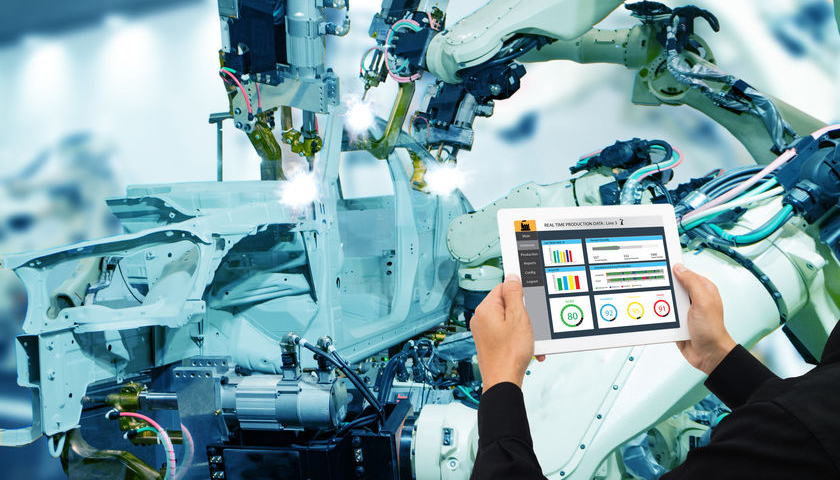The adoption of new technologies in the manufacturing industry is nothing new. Many factories have already implemented some form of digital solution that makes manufacturing processes ever increasingly intelligent and dynamic. However, this sector is evolving further into a digital supply network where everything is interconnected and one that drives greater value within the walls surrounding the factory and across the supply chain.
This is significant because factories are about to get much smarter, leaping forward from traditional automation to a completely connected system. As such, there will be a huge amount of data integration from physical, operational and human assets to power manufacturing, maintenance, inventory tracking and other types of activities across the entire production line.
While machines with automation have eased and sped up the production chain, they are often linear with a set of pre-determined rules. Through the application of Artificial Intelligence (AI), the number of complex tasks a factory can perform increases, leading to more optimized performances across the whole factory and increased adaptability based on real-time events as well as the introduction of autonomous functions that can manage entire production processes.
Nonetheless, AI will not be able to display its full potential if it works in isolation. Manufacturing AI can exists in other aspects of a factory like anticipating the market instead of responding to it. By leveraging its machine learning algorithms and deep learning capabilities, factories can estimate demand and adapt to ever-changing global trends. Furthermore, consumer sentiment can be analyzed and their feelings towards a product captured so as to guide enhanced product redesigns that befit the preference of the customers.
Perhaps the most vital part of a smart factory lies in its connectivity. Better connection produces an infinite amount of data that can be used to generate invaluable and actionable insights, which in turn create commercial opportunities. For this to happen, the Industrial Internet of Things (IIoT) plays a huge role thanks to the utilization of smart sensors. These gizmos allow AI-powered systems to constantly monitor and pull a myriad of data sets from modern and traditional sources, keeping the insights garnered up-to-date with the latest information.
Besides making machines and human operators smarter, IIoT also works hand-in-hand with Big Data Analytics by driving data transparency when it is integrated into an enterprise ecosystem. Just like wearable devices that monitor your heart rate and sleep quality, IIoT enables greater visibility by providing real-time alerts, tracking and quality control while identifying potential issues to reduce and prevent disruptions.
In the face of Industry 4.0, factories are already drowning in data but starving for insights. With the right digital technologies, traditional facilities can be transformed into functional, smart factories that prioritize data to draw insights and take action. As a result, manufacturers will be able to churn out more goods at lower costs with fewer flaws, which can help them break through various obstacles to scale to previously unattainable heights and allows them to continuously move forward into a data-driven future.

